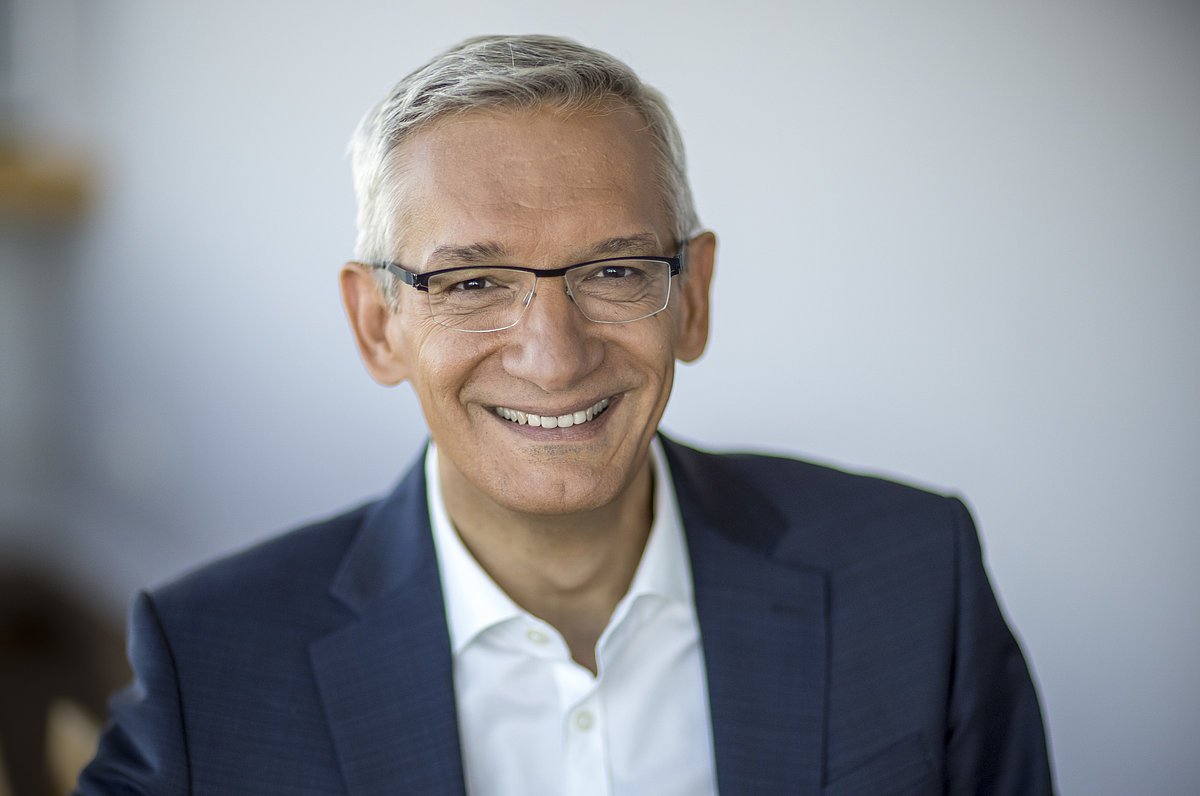COVID-19 knows no borders and can only be overcome if we work together in this interconnected world.
Dear readers,
Over the last year, the COVID-19 pandemic has opened the eyes of the general public around the world to global interconnectedness. The social and economic consequences of this historic crisis will be with us for a long time to come, and will jeopardise development achievements of recent decades worldwide. According to UNICEF, COVID-19 lockdowns have left schools completely closed to 168 million children for a year.
The number of people suffering from the impacts of climate change is also rising. In 2020, average temperatures were 1.2 °C higher than during the pre-industrial era. Droughts, extreme weather events, forest fires and floods are destroying more and more livelihoods.
It is becoming more urgent than ever to find common responses to the global questions that shape our very existence. Industrialised nations, developing countries, emerging economies, the private sector and civil society have a joint responsibility to step up efforts to achieve the goals set out in the 2030 Agenda and the Paris Agreement on climate change.
Viable development policy for the future
Any development policy that is to be viable in future must actively shape bilateral and multilateral cooperation. Given the constantly changing framework in which we operate, it must also be flexible enough to alter its course where necessary to achieve the best possible results.
The BMZ 2030 reform strategy has set the course for us to channel German development funding even more effectively and strategically, and thus help resolve global challenges. The five core areas – effectively the DNA of our development cooperation – align our engagement even more consistently with the 2030 Agenda’s Sustainable Development Goals (SDGs) and the Paris Agreement. We are focusing our bilateral cooperation on 60 partner countries, from which we demand even greater initiative and measurable evidence of progress. In addition to forging in-depth partnerships with reform-minded countries, our focus is on fostering private investment and fair trade. At the same time, however, we can also deliver even more effective, rapid and flexible support to people in conflict and refugee regions.
We also subject our own actions to critical assessment. The value chains of German companies span the globe and our prosperity depends on free global trade. This means we have a major responsibility in helping to put in place fair trade processes and working conditions. The Duty of Care Act launched by Cabinet in March makes Germany a global pioneer in promoting working conditions in line with human rights.
Solidarity during crises
The COVID-19 pandemic affects us all – but it does not affect us all equally. The poor and poorest countries in the world, and already disadvantaged groups, have very few resources to draw on that would help them to overcome the crisis. With its Emergency COVID-19 Support Programme, BMZ has responded swiftly to the acute needs of our partner countries, by redirecting EUR 1.6 billion within the 2020 budget and providing additional funding of around EUR 3.1 billion for 2020 and 2021. It is also supporting them in their efforts to fight the pandemic and mitigate the social and economic consequences of the crisis. This includes not only health sector support, but also assistance in the field of food and nutrition and in stabilising refugee regions and crisis-affected areas, as well as social protection, support for enterprises in key sectors, emergency COVID-19 aid to directly finance national programmes, and further enhanced international cooperation.
Parallel to this, the German Government is campaigning strongly for the equitable distribution of COVID-19 vaccines. The vaccines, which have been developed in a remarkably short space of time, are a massive accomplishment. But they can only achieve their full impact if enough people are vaccinated in the poorer parts of the world too. COVID-19 knows no borders and can only be overcome if we work together in this interconnected world. Germany will contribute a total of EUR 2.1 billion in 2020 and 2021 to the Access to COVID-19 Tools Accelerator for the development, production and equitable worldwide distribution of COVID-19 vaccines, treatments and tests. This means that it is currently the second largest donor to this multilateral medical response to COVID-19, setting a strong example of international solidarity.
GIZ – a reliable partner
Without the exceptional commitment and the presence of many GIZ staff on the ground in our partner countries, the swift change of course and the additional support under the Emergency COVID-19 Support Programme would not have been possible in this way, which has met with great international acclaim. Working conditions, and often living conditions too, have been rendered extremely difficult by the pandemic. The contribution made by GIZ staff in Germany is also considerable. As part of a magnificent joint effort involving BMZ, partner countries and GIZ, and thanks to the dovetailing of work both inside and outside Germany, responses are being found to the issues that will determine our global existence. My warmest thanks go to all staff for their exceptional efforts during this truly challenging period.
Best regards,
Chair of the GIZ Supervisory Board
State Secretary in the German Federal Ministry for Economic Cooperation and Development (BMZ)
Information on the following Sustainable Development Goals (SDGs) can be found on this page:

